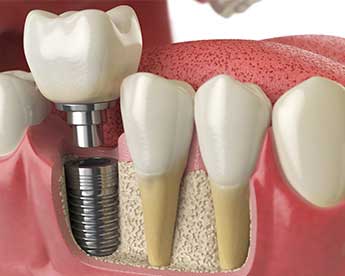
When a person has teeth missing, it can affect their health along with how they feel about their appearance. Statistics shows 69 percents of adults over the age of 35 have lost at least one permanent tooth to gum disease, an accident or through health issues such as diabetes or acid reflux.
Investing in implants is a wonderful way to get your smile back as well as boost your self-esteem and lower your risk of digestive problems due to chewing inefficiencies as the result of empty gaps between the teeth.
However, many people might question if implant are as strong as natural teeth. They need not worry because with today’s technology and science; dental implants are built for long-lasting results and when done by an oral specialist it is one of the safest medical procedures in dentistry.
About dental implants…
Dental implants are made of three different components:
- The base, made from titanium is implanted surgically into the jawbone, which will result with infusion over time as the individual begins to heal.
- The abutment connects to the base implant and is the point of contact between the gum line and the crown.
- The crown is fitted onto the abutment, resulting in a person having a natural visual aspect.
- With the implants being fused into the jawbone, it is not only a permanent support for the restored tooth or teeth, it also helps keep the bones of the face from deteriorating causing premature sagging of the skin.
With proper care, dental implants are just as durable, if not more indestructible than natural teeth.
Other advantages of dental implants…
- No cavities
- Able to enjoy food
- Better speech pattern
- Keeps surrounding teeth stable
- Improved quality of life
If you are not happy with the way your teeth look and you want the confidence to flash the world an enduring beautiful smile, it would a good idea to contact a professional dentist trained in dental implantation to help you live the life you deserve.